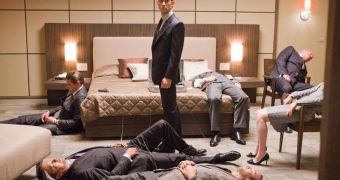Famous for movies such as the “Dark Knight” and “Memento,” director Chris Nolan really raised some interest with his latest production, called “Inception.” The film is about the world of dreams, and its possible applications in certain circumstances. Here is an overview of the science that informed the idea behind the movie. If you haven't seen “Inception” yet, don't read ahead, there may be spoilers for you.
The major plot in this movie is heavily reliant on the notion that two or more people can share the same dream. While this is indeed uncommon, it's not impossible. Identical twins have reported being able to share dreams, and they are not the only ones capable of the feat. Long-married couples can do it too, as can people who have gone through shattering experiences together. Researchers believe that these events are what allow the individuals to meet each other in a common dream, by priming their brains for the job.
Another central point in “Inception” is that ideas can be stolen from a person's unconscious mind during dreams. Here is where the shared dream comes in. A team of specialists called “extractors” goes into the mind of a target, and then attempt to recover the idea. Sleep scientists say that this is entirely true, although the experience is extremely personal for each individual. That is to say, daily experiences are indeed included in what people dream, but they associate with already-existing ideas and thoughts in patterns that are unique, like fingerprints.
The third plot device is the job a team of extractors (led by Leonardo DiCaprio as Dom Cobb) needs to do. They are given the task of implementing a dream into the mind of a target, rather than extract information that is already there. In sleep science, this is something that can be done on a regular basis, and the mechanism for it is extremely simple. Say, for instance, that you need to take an important decision, but find it hard to decide on a solution. If you want the answer to come from a dream, simply write down all other problems that are bugging you the night before you go to sleep.
Scientists explain that this will help the brain give you the answer you are looking for, in the sense that it will not have to process the excess information too. This will in turn give it ample opportunity to dream about the problem you want the answer to. In the end, a large part of the seemingly-science-fiction plot devices we've seen in “Inception” could seem to be a stretch, but in reality they are far from it. However, it's doubtful that we'll encounter real-life extractors any time soon.

 14 DAY TRIAL //
14 DAY TRIAL //